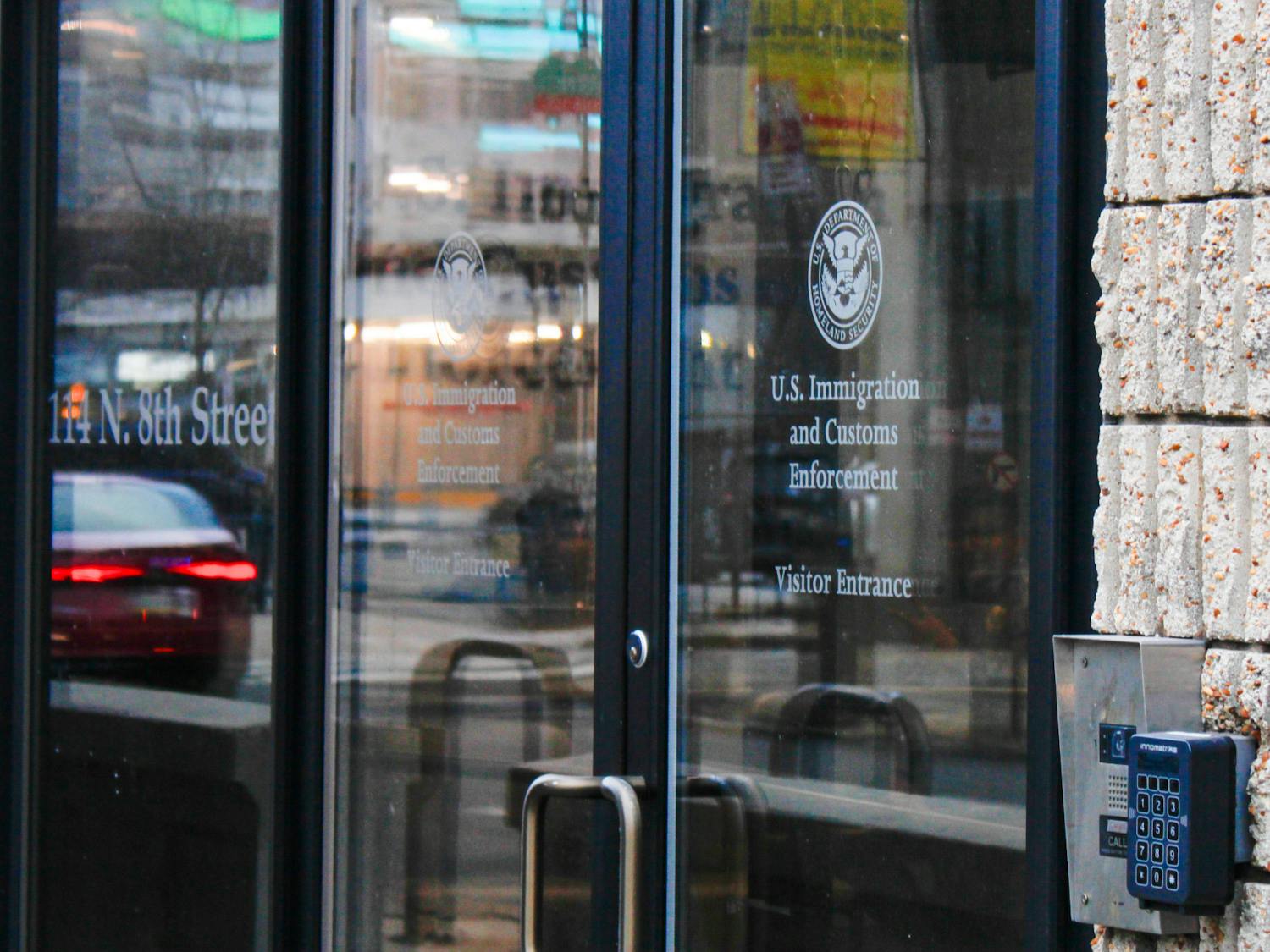Several weeks ago, the University of Pennsylvania announced proposed changes to the process for reporting issues of sexual harassment in our community. One change is to designate a single staff member to receive and respond to allegations of sexual harassment from across campus. We are pleased that Penn is finally responding to urgent critiques raised by Graduate Employees Together-University of Pennsylvania, Graduate and Professional Student Assembly, and others: When deans, department chairs, and peers of the accused are given the power to investigate sexual misconduct, allegations are often swept under the rug. When students allege misconduct by their employers, supervisors, or instructors, there are massive power imbalances that the University has not been mitigating. We hope this policy will be a step in the direction of changing that. However, there are several things that continue to concern us, as members of GET-UP, Penn’s union of graduate workers.
These proposed changes come at a time when the Trump administration and Betsy DeVos have made clear their commitment to loosening restrictions in Title IX investigations. While we recognize the importance of due processes and credible investigations into all allegations, claims of fair due process are frequently used as a dishonest talking point. It is clear that the spirit of these changes is not to create a more just process, but rather to ease the burden on the accused. The draft of Trump/DeVos rules change the standard of sexual harassment so that it no longer includes conduct that students have recognized as threatening and detrimental to their work and education, making this process even murkier for students who are already unsure how to address the problems they are facing in the workplace. Penn may delay their improved reporting system just long enough for it to fall under the new rules, thus continuing to avoid addressing harassment and other misconduct. We are disappointed by the lack of transparency and the limited engagement of students, faculty, and staff that the University's administration has sought. So far, all we have are the assurances that our procedures are “likely” OK.
In light of coming changes to the standard of proof in cases of harassment, Penn must do more to increase transparency about how this will be set up and implemented. In the same way that we are concerned with the deans having the power to sweep these issues under the rug, we are acutely aware that any agent of the University of Pennsylvania will have real incentives to pursue options that reduce liability of the University, and not necessarily to protect those bringing forward concerns. Recently, Title IX investigations themselves have come under fire for being tilted in favor of universities' concerns about financial liability rather than the rights and protection of the victims as well as the accused. How can this new system truly work for students experiencing harassment? What will distinguish formal and informal reports? What are the grounds for deciding whether issues are raised to the level of a Title IX investigation? How will reports be filtered and triaged? As these are issues that have important implications for students and workers, we should be seriously engaged in the development and implementation of these policies and procedures, not simply the audience for a brief presentation followed by a Q&A.

Courtesy of GET-UP
Unfortunately, while we agree that the reporting structure for misconduct must change, proposals so far indicate that the University still fails to see this issue as exacerbated by the contingent and precarious employment statuses of many graduate workers. Bringing forward an issue of sexual harassment against a faculty member, adviser, or colleague risks your standing in your department and sometimes even your job. As Anita Hill and Kimberlé Crenshaw reminded Penn’s community on October 10, students are at the mercy of their advisers and departments. It is incumbent upon Penn to recognize the power hierarchy that exists in academia, and anticipate these concerns by establishing measures to protect students from these acts of retaliation.
We have seen how this usually plays out. Take the case of graduate worker Celeste Kidd at the University of Rochester from several years back. The Title IX investigation into her advisor (which was combined with allegations of other students and faculty) yielded inconclusive evidence and she, along with several other complainants and faculty members, had to move to different universities as a result. Graduate student workers should not be punished for bringing forward allegations of abuse and misconduct, whatever the outcomes of the investigations. However, without a proper procedure or safety net in place, many find that the only option is moving on.
But we know it doesn’t have to be that way. At the University of Connecticut, their graduate union has been working to protect graduate workers from these situations:
“Not even two months after contracts were signed at UConn, a female graduate worker was sexually harassed by a professor. After observing the university procedure under Title IX, UConn determined that no evidence existed to buttress the student’s claim. She turned to the union grievance procedure included in her labor contract, which included filing a gender-discrimination complaint with a human rights organization unrelated to the university — and she won.”
SEE MORE GUEST COLUMNS:
Asian American voter turnout has been low. That needs to change.
Students and graduate workers shouldn’t have to feel that their livelihoods are in jeopardy when they raise concerns about their workplace. And they shouldn’t have to fear retaliation from faculty or the university for raising such concerns. Penn’s administration should recognize that these are issues that affect us as workers and vulnerable portions of the University's power structure. If these last few weeks and the heated battle in Congress over the most recent Supreme Court nominee have taught us anything, it’s that we can’t afford to sit back and hope that these issues resolve themselves.
Signed by members of GET-UP’s Sexual Harassment Committee:
Katie Rader, doctoral candidate, Political Science, SAS, Albuquerque, N.M., klrader@gmail.com
Mark Lewis, doctoral candidate, Educational Linguistics, GSE, Spring City, Pa., mark.christopher.lewis@gmail.com
Katie Pak, doctoral candidate, Educational Leadership, GSE, New York kpak20@gmail.com
Esther Liu, M.S.Ed. candidate, Educational Linguistics Division, GSE, New York, esther.liu@gmail.com
Amy Schindelman, M.S.Ed. candidate, Educational Linguistics Division, GSE, West Springfield, Mass. amschindelman@gmail.com
Olivia Harding, doctoral candidate, Cell & Molecular Biology, BGS, Roanoke, Va., hardingoj@gmail.com
Rebecca Fishman, doctoral candidate, Physics, SAS, Philadelphia, Pa., rfishman12421@gmail.com
Alicia Chatterjee, MSW/doctoral candidate, Social Welfare, School of Social Policy & Practice, Portland, Maine, alicia.chatterjee@gmail.com









